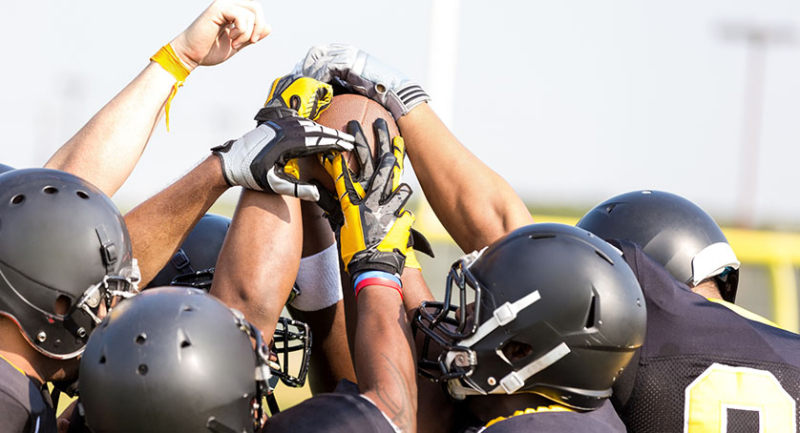
As Super Bowl party preparations ensue, you likely have a checklist of everything you need. Chips? Check. Wings? Check. Adult beverages? Check. While it can feel like our every day is far removed from the plays and tackles on the football field, the traits that propel teams toward the Super Bowl are the same ones that create dynamic and successful workers and businesses. We’ve compiled our own checklist of ways to start building a championship team without stepping on the turf.
Performance Under Pressure
Although you might not have a packed stadium watching your every move, you likely still feel the pressure at work to perform daily. Unlike professional athletes, we don’t always have the option to call a time-out when we feel stressed giving a presentation, compiling a highly-visible report, or working on an important project. Top performers are fueled by pressure rather than allowing themselves to be distracted. The key to performing under pressure… practice.
Few MVP players have stepped onto the field and scored a touchdown during their opening game without first spending months training— building skills takes time and practice. Run your proposal past coworkers to get their feedback. Have a friend proofread your newsletter. Grab a free teammate to sit through a demo of your presentation. You might not get many chances to practice high-stakes interactions, but you can hone the skills you need to succeed by ‘practicing like you play.’ Treat each minor presentation with the same level of care and professionalism as you would larger events. The more you refine your skills, the easier it will be to work under stressful situations, which in turn has a calming effect on the attitude of your teammates. Practice makes perfect, after all.
Moving On (Even After A Bad Call)
Just like in football, things don’t always go your way. If players stopped to mourn every interception or missed tackle, the game wouldn’t just be less interesting—it would not happen. Powering through failure and persevering is what sets teams apart. In football and in the workforce, it is important to move on from mistakes. Outside circumstances, like weather events or equipment malfunctions, can throw a wrench into the best-laid plans. In other cases, human failures can lead to setbacks. Either way, it’s important to keep moving forward. Your next success could be right around the corner.
At the same time, taking a moment to reflect on mistakes can provide key insights and lessons for the future. Choosing the right time and place to address workplace mistakes is important. Coaches and players huddle in the locker room and watch game footage to identify weaknesses. In the corporate world, pulling aside individuals to address them one-on-one is an easy way to resolve issues without sacrificing team morale. Once feedback is given, take any necessary follow-up steps, acknowledge the mistake, and then move forward with a clean slate. Don’t let focusing on a past miscalculation prevent you from taking risks that could lead to your next big play.
Stick To The Game Plan
No individual player can take a team to the Super Bowl. It takes a group of talented athletes working together, constantly communicating, and supporting each other. Great businesses are the same way. Football teams need a mix of talent, from quarterbacks to kickers to defensive tackles. The work world is no different, with each person bringing their own expertise to the group. You can only succeed by aligning your goals with the rest of your team members and working as part of a cohesive unit. This requires an open communication channel, where everyone’s ideas and contributions can be heard and acknowledged. Effectively communicating ideas, listening to your teammates, and making decisions that will benefit the group, are ways anyone can contribute to team success.
Get The Right Equipment
While knee pads and helmets likely aren’t required in the average workplace, how you suit up for your job makes a difference. You can trick your brain into being more effective by choosing clothing that emulates what a successful professional might wear. Adding a blazer to your outfit, swapping sneakers for high heels, or even substituting sweats for jeans signals to your brain that it’s time to focus. This is especially helpful when you’re working from home, and your workstation might double as a kitchen table or a space where you spend non-work hours. Dressing up—or at the least something different than your non-work clothes—creates a clear distinction between work and off-hours time.
Its Game Time
Only one team is crowned the Super Bowl Champion, but every team can be successful off the field. By following the above steps, you can build a championship team capable of crushing the competition.
